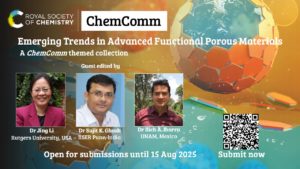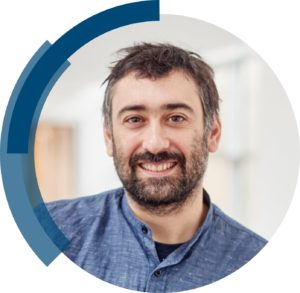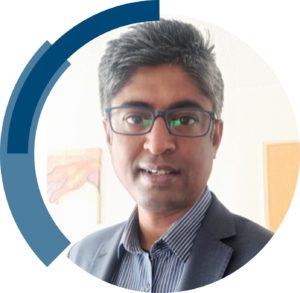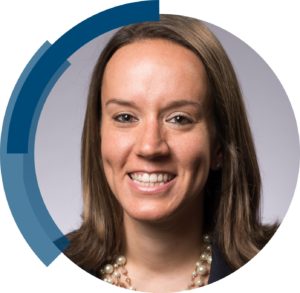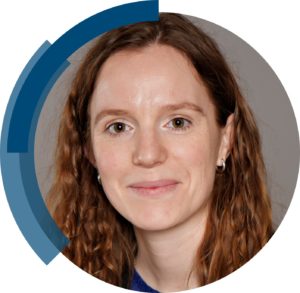Chemical Communications is glad to publish a themed collection on Kaleidoscope: A discussion meeting in chemistry. Guest Edited by Professor G. Naresh Patwari (Indian Institute of Technology Bombay), Professor Jyotishman Dasgupta and Professor Vaibhav Prabhudesai (both from Tata Institute of fundamental Research, Mumbai), this collection highlights the exciting research by the speakers of Kaleidoscope-2023.
Kaleidoscope is an annual gathering of Indian investigators working in various fields of in chemistry and allied areas. Started in 2014, this meeting is a platform for young investigators to discuss, identify and seek suggestions and collaborations among the peer group on contemporary research trends in chemistry and allied areas, particularly biochemistry, chemical biology, and material science. The primary aim of this meeting is to provide a platform for the exchange of new ideas and fresh perspectives among chemists of all different fields of research.
This invitation-only meeting brings young investigators from diverse areas of chemistry together to share their ideas, encouraging productive collaborations in interdisciplinary sciences. Over the years, this meeting became very popular and became an annual affair with different research groups across India took turns to organize and is typically organized in the first weekend of July. The Kaleidoscope-2023 edition of this meeting (July 6–9, 2023), was the 9th in the series and was organized in the serene confines of YAAN Wellness Retreat, Udaipur.
The meeting consisted of 10-minute presentations followed by 20-minute Q&A session. A post-dinner round-table session was held to discuss various aspects of presentations made during the day which included suggestions, possibility of diversification and collaborations. The unique aspect of the meeting is the absence of preassigned speaking slots and a lottery is used to pick the first slot each speaker at the end of his talk will pick the speaker for the next slot by lottery. Kaleidoscope is a highly interactive and focused meeting where the delegates stay for the entire duration of the meeting and are refrained from using laptops/mobile phones and other communication devices during the course of presentations.
Kaleidoscope-2023 had 36 participants (see photograph), including representatives from Royal Society of Chemistry and American Chemical Society. The list of topics ranged from anti-biotic resistance, biomolecular simulations, dynamics in complex chemical systems, exciton dynamics, intermolecular interactions, photochemistry, sensing in biology, and several others. All the participants of the meeting were invited to contribute to the themed collection.
The Themed Collection can be accessed here: rsc.li/4cdECA5

Group picture of all the participants in the Kaleidoscope 2024 meeting held at the Yaan Wellness Retreat, Udaipur.
From left to right (Standing): Sajesh Thomas, Ankona Dutta, Vamsee Voora, Sarit Agasti, Jagannath Mondal, Pratap Vishnoi, Nabanita Deb, Amartya Bose, Sanjog Nagarkar, Vishal Govind Rao, Subhabrata Maity, Veerabhadrarao Kaliginedi, Debashree Ghosh, Palas Roy, Suman Chakrabarty, Kalaivanan Nagarajan, Asha Liza James (ACS Representative), Hema Chandra Kotamarthi, Pranav Shirhatti, Amrita Hazra.
From left to right (Sitting): Ravindra Venkatramani, Jayashree Nagesh, Shankar Singh (Event Manager), Sabuj Kundu, Vaibhav Prabhudesai, Anindya Datta, Jyotishman Dasgupta, G. Naresh Patwari, Sameer Sapra, Jayanta Haldar, Sayan Bagchi, Arnab Mukherjee, Chandan Jana, Harinath Chakrapani.
Acknowledgements
We acknowledge the partial funding provided by the Tata Institute of Fundamental Research, the Royal Society of Chemistry and the American Chemical Society for enabling us to host the meeting.
Full List of Participants
| Name |
Institute |
| Amartya Bose |
Tata Institute of Fundamental Research, Mumbai |
| Amrita Hazra |
Indian Institute of Science Education and Research, Pune |
| Anindya Datta |
Indian Institute of Technology Bombay |
| Ankona Datta, |
Tata Institute of Fundamental Research, Mumbai |
| Aparna Ganguly |
RSC India, Bengaluru |
| Arnab Mukherjee |
Indian Institute of Science Education and Research, Pune |
| Asha Liza James |
ACS India, Delhi |
| Chandan Jana |
Indian Institute of Technology Guwahati |
| Debashree Ghosh |
Indian Association for Cultivation of Science, Kolkata |
| Durga Prasad Hari |
Indian Institute of Science, Bengaluru |
| G Naresh Patwari |
Indian Institute of Technology Bombay |
| Harinath Chakrapani |
Indian Institute of Science Education and Research, Pune |
| Hema Chandra Kotamarthi |
Indian Institute of Technology Madras |
| Jagannath Mondal |
Tata Institute of Fundamental Research, Hyderabad |
| Jayanta Haldar |
Jawaharlal Nehru Centre for Advanced Scientific Research, Bengaluru |
| Jayashree Nagesh |
Institute of Bioinformatics and Applied Biotechnology, Bengaluru |
| Jyotishman Dasgupta |
Tata Institute of Fundamental Research, Mumbai |
| Kalaivanan Nagarajan |
Tata Institute of Fundamental Research, Mumbai |
| Nabanita Deb |
Indian Association for Cultivation of Science, Kolkata |
| Palas Roy |
Indian Institute of Technology Bhubaneswar |
| Pratap Vishnoi |
Jawaharlal Nehru Centre for Advanced Scientific Research, Bengaluru |
| Pranav Shirhatti |
Tata Institute of Fundamental Research, Hyderabad |
| Ravindra Venkatramani |
Tata Institute of Fundamental Research, Mumbai |
| Subhabrata Maiti |
Indian Institute of Science Education and Research, Mohali |
| Sabuj Kundu |
Indian Institute of Technology Kanpur |
| Sajesh Thomas |
Indian Institute of Technology Delhi |
| Sameer Sapra |
Indian Institute of Technology Delhi |
| Sanjog Nagarkar |
Indian Institute of Technology Bombay |
| Sarit Agasti |
Jawaharlal Nehru Centre for Advanced Scientific Research, Bengaluru |
| Sayan Bagchi |
CSIR – National Chemical Laboratory, Pune |
| Suman Chakrabarty |
S. N. Bose National Centre for Basic Sciences, Kolkata |
| Vaibhav Prabhudesai |
Tata Institute of Fundamental Research, Mumbai |
| Vamsee Voora |
Tata Institute of Fundamental Research, Mumbai |
| Veerabhadrarao Kaliginedi |
Indian Institute of Science, Bengaluru |
| Vishal Govind Rao |
Indian Institute of Technology Kanpur |
| Vivek Tiwari |
Indian Institute of Science, Bengaluru |


